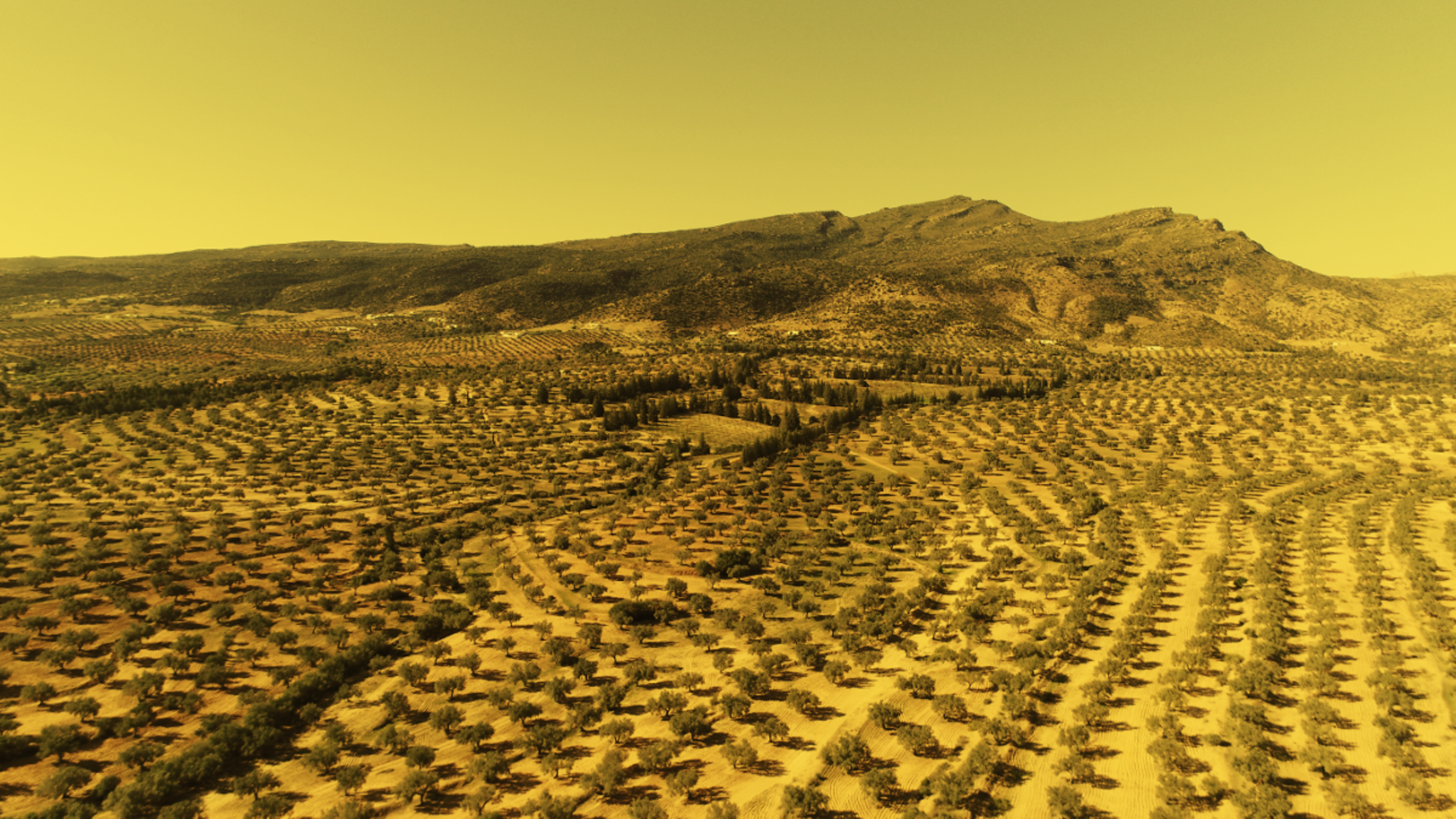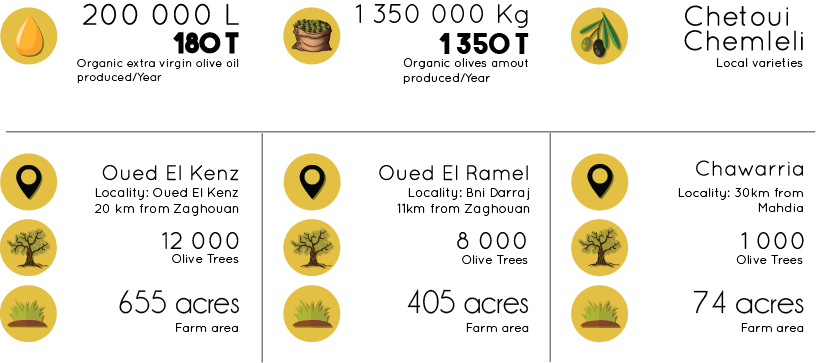Olive trees have deep roots in the Tunisian culture. The tradition of growing and cultivating olives dates back millennia to the 8th Century B.C. The knowledge of growing, harvesting, and pressing that same harvest into oil traveled through the most famous ancient civilizations. For the Phoenicians and the Carthaginians, to the Romans and the Andalusians (who once inhabited modern day Tunisia), olives and olive oil played an important role in daily life, and had many uses. These ancient people used them not only as a source of nutrition, or for cooking, but also in cosmetic products, and even as the main source of fuel in their oil lamps.
Through the millennia, both the knowledge of the Andalusians, and Tunisia’s strong beliefs in organic farming, are well-respected, and well-preserved to this day. In fact, most land in Tunisia is already 95% organic.
Fermes Ali Sfar is no exception. Our land extends more than 1,200 acres at the base of the Zaghouan Mountains, and every inch of soil is 100 percent Certified Organic. We take great pride in meeting, and exceeding, the standards set forth by ECOCERT.

three Farms

Tesoro Del Rio olives produce an extra-virgin oil that is intense, and fruity.
Our name comes from the Spanish translation of the Arabic “Oued El Kenz” river. The pure water that comes from this river irrigates our olives groves, and gives our products their distinct flavor.
Today, the “Oued El Kenz” river runs through our farmlands and into villages located in Zaghouan’s valleys in just the same way it once did in the times of the ancient Roman empire.
The city of Zaghouan in Northeastern Tunisia, in that time called Ziqua, was revered by the Romans for its fresh water. They then harnessed the power of this water source by creating a complex series of aqueducts for the purpose of bringing clean water to Carthage. Vestiges of this ancient irrigation system are still visible today, and are often admired for their ingenuity, complexity, and beauty.

